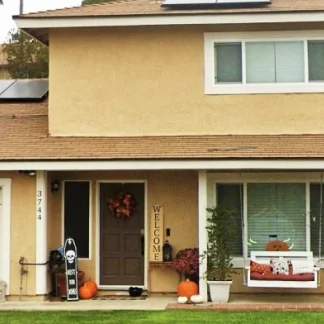VA San Diego Healthcare System - Oceanside CBOC
VA San Diego Healthcare System–Oceanside CBOC is an outpatient mental and behavi...
McAlister Institute - Adolescent Residential offers a residential detox treatment for teens. Additionally, teens receive individual, group education and self-help groups. McAlister Institute - Adolescent Residential is located at Oceanside, California.
Services has been tailored to meet the needs of each teen that have been affected by substance abuse. Teens also receive counseling, education groups, self-help groups and participate in many recovery activities.
Contact us for more information: (760) 806-1495

Connect with McAlister Institute - Adolescent Residential by calling their admissions team directly.
(760) 806-1495 Website Get DirectionsCognitive Behavioral Therapy (CBT) is a therapy modality that focuses on the relationship between one's thoughts, feelings, and behaviors. It is used to establish and allow for healthy responses to thoughts and feelings (instead of unhealthy responses, like using drugs or alcohol). CBT has been proven effective for recovering addicts of all kinds, and is used to strengthen a patient's own self-awareness and ability to self-regulate. CBT allows individuals to monitor their own emotional state, become more adept at communicating with others, and manage stress without needing to engage in substance abuse.
Group therapy is any therapeutic work that happens in a group (not one-on-one). There are a number of different group therapy modalities, including support groups, experiential therapy, psycho-education, and more. Group therapy involves treatment as well as processing interaction between group members.
In individual therapy, a patient meets one-on-one with a trained psychologist or counselor. Therapy is a pivotal part of effective substance abuse treatment, as it often covers root causes of addiction, including challenges faced by the patient in their social, family, and work/school life.
Group therapy is any therapeutic work that happens in a group (not one-on-one). There are a number of different group therapy modalities, including support groups, experiential therapy, psycho-education, and more. Group therapy involves treatment as well as processing interaction between group members.
In individual therapy, a patient meets one-on-one with a trained psychologist or counselor. Therapy is a pivotal part of effective substance abuse treatment, as it often covers root causes of addiction, including challenges faced by the patient in their social, family, and work/school life.
In individual therapy, a patient meets one-on-one with a trained psychologist or counselor. Therapy is a pivotal part of effective substance abuse treatment, as it often covers root causes of addiction, including challenges faced by the patient in their social, family, and work/school life.
VA San Diego Healthcare System–Oceanside CBOC is an outpatient mental and behavi...
VCC – Vista Community Clinic – Horne provides office-based alcohol and drug reha...
Present Moments Recovery – Harding Street is a private rehab located in Carlsbad...
MHS – North County Center for Change is a drug and alcohol rehab that treats adu...